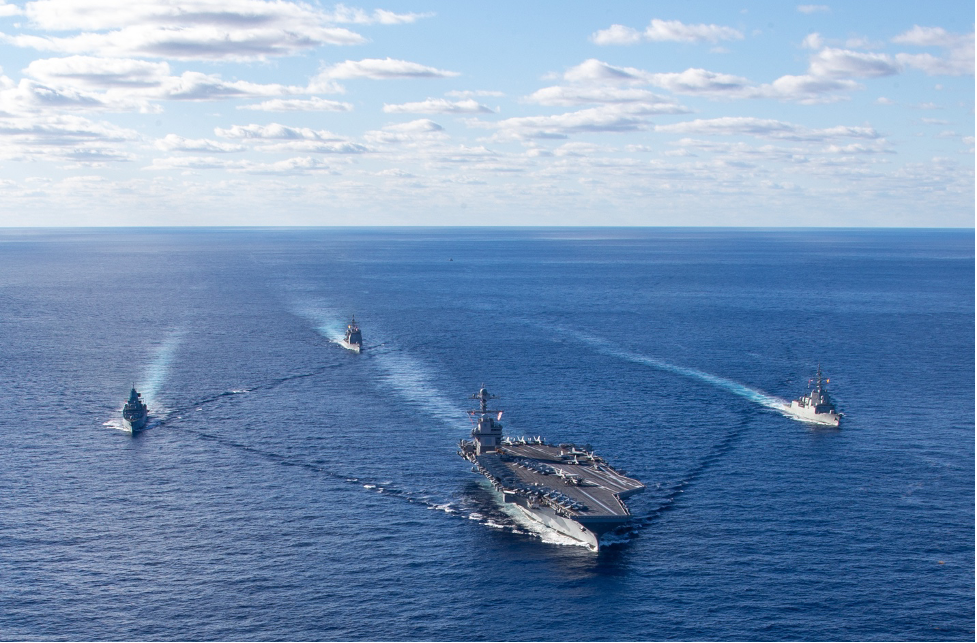U.S. Navy photo by Mass Communication Specialist 3rd Class Jacob Mattingly
The Indo-Pacific domain is inherently a maritime domain, and one that is central to the global economy and global security. Given the importance of this region and the distances involved, the ability to project naval power is perhaps now more important than ever. Yet, despite this recognition, the United States and its allies find the generation of naval force increasingly difficult. Twenty years of low-intensity conflict, reduced investment, a shrinking defense industrial base, and the hemorrhaging of industrial talent are all stymying the ability of the federal government to generate and project naval power.
At the same time, China is rapidly investing in its naval capacity, deploying what is now the world’s largest navy, and seeking to secure bi-lateral agreements for basing and support throughout the Indo-Pacific. Taken together, these domestic and international pressures represent the greatest challenges to American naval supremacy.
How did the United States and the United Kingdom arrive at this point, and how can Washington and London not just arrest the naval slide, but respond to this demanding moment in history? The Center for the Study of the Presidency & Congress is pleased to welcome Ms. Salisbury to discuss these challenges and what it means for the pivot of the United States and the tilt of the United Kingdom to the Indo-Pacific. She will be in conversation with Joshua C. Huminski, the Director of the Mike Rogers Center for Intelligence & Global Affairs.
If you’d like to attend, please email sophie.williams@thepresidency.org
Emma Salisbury is a Ph.D. candidate at Birkbeck College, University of London, with research focusing on the military-industrial complex, defense procurement, and military innovation. She is an associate fellow at the Council on Geostrategy, an associate fellow at the Ministry of Defense Development, Concepts, and Doctrine Centre, a senior staffer for a Member of Parliament, and an assistant editor at War on the Rocks.


